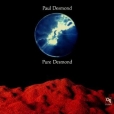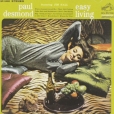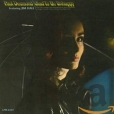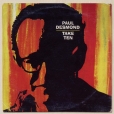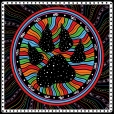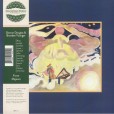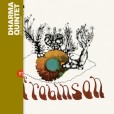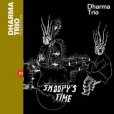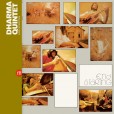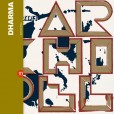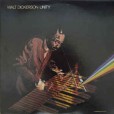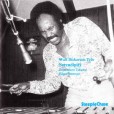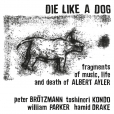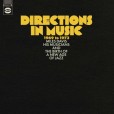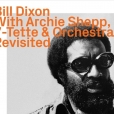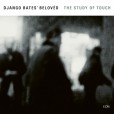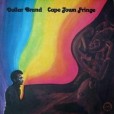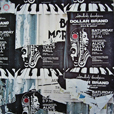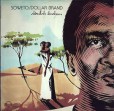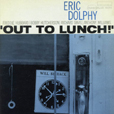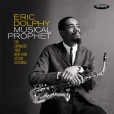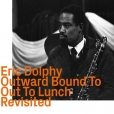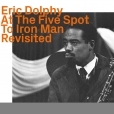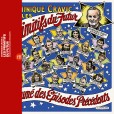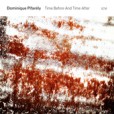Your basket is empty

Bassist Dezron Douglas and harpist Brandee Younger doing over Alice and John Coltrane, The Stylistics, The Jackson 5, Pharoah Sanders, Kate Bush, Sting, and The Carpenters.
Douglas has worked with Pharoah Sanders and David Murray, amongst other jazz notables; Younger with Charlie Haden, Stevie Wonder, Lauryn Hill… Both are featured on Makaya McCraven’s Universal Beings.
‘It’s an uplifting suite of real, soulful comfort music — a spiritual salve.’
“We try to reach within free jazz the same sort of rhythmic cohesion as in bop… based not exactly on tempo, but something which feels like tempo. A kind of underlying pulse.”
This is Dharma’s first LP: from the same neck of the woods as the Cohelmec Ensemble, a mixture of spiritual jazz, free jazz and electric Miles — especially for its keyboards — infused by the anti-authoritarian politics of collectivism and anti-hierarchism.
Saxophonists Jef Sicard and Gérard Coppéré are moonlighting from Claude Delcloo’s Full Moon Ensemble.
Their second LP, released three months after Mr. Robinson in 1970.
Funky jazz-rock — tight, direct, restless. Pianist Patricio Villarroel lays on the Corea / Jarrett vibes; alongside bassist Michel Gladieux and drummer Jacques Mahieux.
‘Winding operations down after End Starting, Archipel is likewise planned-out music, mixing free rock and European free jazz in a series of collective explosions based on abrupt and contrasting improvisations. For much of the time, piano, guitar and saxophone intertwine over intense rhythms. Everything is electric, with the density of On The Corner, and flashes of viciousness all its own.
‘Along with the Cohelmec Ensemble, the Workshop de Lyon, the Full Moon Ensemble, Perception, Armonicord or the Michel Portal Unit, the Dharma Quintet stands out as one of the most important examples of free jazz as it was played in France at the beginning of the 1970s.’
A moody, ambitious, intriguing record, originally released by Audio Fidelity in 1964.
Just two side-long tracks — and an amazing lineup, with Walter Davis on piano, bassist George Tucker, and two drummers together, Edgar Bateman and the great Andrew Cyrille.
The sleeve-notes quote a Downbeat article from the same year, claiming that Dickerson was the most important vibraphonist since Milt Jackson: ‘instead of solos made up of one related note following another, Dickerson often builds areas of sound, placing them one on the other, creating a total effect.’
Three LPs, boldly mapping their own way through Fire Music, with elements of modern classical music and an abstraction of Mingus as their guiding stars: The Archie Shepp-Bill Dixon Quartet, originally released in 1962 on Savoy; the split Bill Dixon 7-Tette / Archie Shepp And The New York Contemporary 5 from 1964, another Savoy, with some ace Ken McIntyre; and the sombre masterpiece Intents And Purposes, by The Bill Dixon Orchestra — devised to accompany contemporary dance, and with some scorching Byard Lancaster — originally released in 1967 by RCA Victor.
The towering jazz landmark originally issued in South Africa in 1974 under the title Mannenberg Is Where It’s Happening. Recorded with Basil Coetzee, Robbie Jansen, Monty Weber and Morris Goldberg, the music protested the evictions underway from District Six, whereby ‘coloureds’ were murderously booted out to Mannenberg township (where Coetzee was from). The LP sold by the thousands within weeks, becoming South Africans’ unofficial national anthem.
“I’d had the experience of playing dance bands, African dance bands like the Tuxedo Slickers, and we played xhosa, American swing music, mbaqanga… I also played with coloured dance bands — waltzes, quick-steps, squares, paso doble, then also the traditional Cape music…”
An upfully ravishing, hypnotically danceable, rootsily syncretic, universal call to resistance.
Magnificent jazz from 1977 by this nonet including Don Cherry, Johnny Dyani — both top-form — Hamiett Bluiett and Roy Brooks. The grooving, rolling, side-long Hajj — with eastern-style oboe — is knockout.
Another five-star, stone classic. Check his bass clarinet scorching into the Monk tribute, to start. Fire! The rhythm section — Anthony Williams and Richard Davis, Stravinsky’s favourite bassist — is stupendous.
New recordings of self-styled ‘world tribal musette’ by this long-standing orchestra fronted by the ukulele of Dominique Cravic and the banjo of Robert Crumb. The valse musette of 1920s Paris, blending with Congolese rumba, gypsy jazz, Hindu waltzes, Argentine tango, blues, Paso Doble, chanson réaliste…
‘The Primitifs Du Futur travel on sound waves back in time to the early twentieth century and make the world seem like a far better place than it ever actually was. I cant get the band’s music off my turntable or out of my head. Accordion, mandolin, harmonica, saxophone, musical saw, and beautiful haunting melodies — what’s not to love? Even their sad songs make me happy’ (Art Spiegelman).
